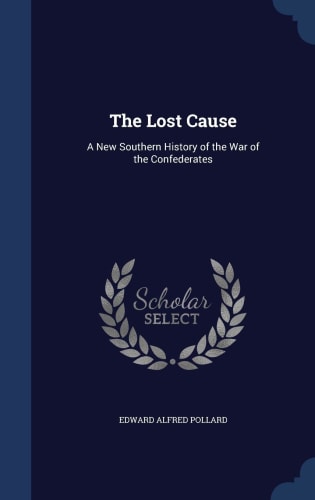
The Lost Cause: a New Southern History of the War of the Confederates
One of the most important works written about the Civil War came from someone who didn't fight in the war itself. In 1867, Edward Pollard, an editor for a Richmond newspaper, published The Lost Cause, championing his voluminous book as a "New Southern history" of the war. Pollard's work poignantly reflected the sentiments of unrepentant rebels clinging to their ideology. Pollard explicitly explained the motivation behind what he termed the "Lost Cause." Although the South had lost the Civil War, he argued that the South could still wage and win the "war of ideas." Conceding that the South's loss meant "restoration of the union and the excision of slavery," Pollard was still defiant, writing that "the war did not decide Negro equality." To say Pollard's work was influential would be an understatement. Pollard's "Lost Cause" quickly found its way into Southern writing, most notably in the Southern Historical Society. Described by historian David Blight as "the vehicle for presenting the Confederate version of the war to the world," Civil War historiography originated with Pollard's work and the papers published by the Society. Written mostly by unreconstructed veterans aiming to relate and rewrite the history of the Civil War, the Society's papers became the most important driving force for Southern revisionism, dedicated to making their vision of Civil War history the dominant one. The Society would prove to be extremely successful at this, and the Lost Cause interpretation of the Civil War, named after Pollard's work, is still one of the most influential today.
The Lost Cause: a New Southern History of the War of the Confederates
